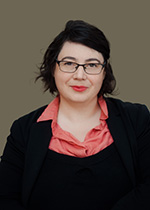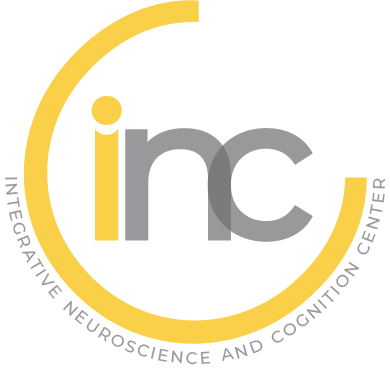Speaker
-
Charlotte BoccaraUniversity of Oslo-Norway
How memories can be stored and modified: decoding hippocampal algorithms during learning and sleep, by Charlotte Bocccara
How memories can be stored and modified: decoding hippocampal algorithms during learning and sleep
Summary
Making memories can be described as a two-step process. Step one is the learning – or encoding of new information in a temporary storage – the hippocampus – one of the first brain region affected by Alzheimer disease. The information can be completely new or can be a modification of an already known situation. Step two is the consolidation of such newly learnt information and their transfer into a long-term storage in the cortex, where it will be accessible for later recall if a need arises. Such transfer of information is thought to heavily relies on a good dialogue between the hippocampus and the cortex, especially during sleep. While the two-stage memory model is widely recognized, we have very little data on (i) what mechanisms support information update, (ii) how and when the hippocampo-cortical dialogue happens and (iii) how it affects the memory neural code. To finally bridge this important knowledge gap, we have concomitantly recorded from the CA1 region of the hippocampus and the medial entorhinal cortex of rats while they learn new goal locations, sleep and have their memory tested after.
Short Biography
 Dr Charlotte Boccara is a French-Norwegian neuroscientist. After completing her undergrads in Paris (Université Paris 6, Pitié-Salpêtrière), she undertook her PhD under the supervision of Edvard and May-Britt Moser (Norwegian University of Science and Technology, NTNU). There she learnt in vivo electrophysiology techniques to study the hippocampal spatial code. After graduation, she joined Jozsef Csicsvari group as a Postdoctoral Researcher at the Institute of Science and Technology in Austria (ISTA). There she trained in computational methods to decode sleep and complex cognitive mechanisms. This was followed by a short stay at King’s College London where she worked on neurodevelopmental disorder models. In 2019, she received funding from the Norwegian Research Council to lead a project on “sleep and cognitive development” at the Institute of Basic Medical Sciences in Oslo. In 2022, she was appointed group leader in precision medicine at the Norwegian Centre for Molecular Medicine, an EMBL partnership node. Dr Boccara research is built at the junction of Systems Neuroscience, Computational Neuroscience and Developmental Biology. Her group’s aim is to uncover some of the neural mechanisms happening while we sleep that are crucial to our health.
Dr Charlotte Boccara is a French-Norwegian neuroscientist. After completing her undergrads in Paris (Université Paris 6, Pitié-Salpêtrière), she undertook her PhD under the supervision of Edvard and May-Britt Moser (Norwegian University of Science and Technology, NTNU). There she learnt in vivo electrophysiology techniques to study the hippocampal spatial code. After graduation, she joined Jozsef Csicsvari group as a Postdoctoral Researcher at the Institute of Science and Technology in Austria (ISTA). There she trained in computational methods to decode sleep and complex cognitive mechanisms. This was followed by a short stay at King’s College London where she worked on neurodevelopmental disorder models. In 2019, she received funding from the Norwegian Research Council to lead a project on “sleep and cognitive development” at the Institute of Basic Medical Sciences in Oslo. In 2022, she was appointed group leader in precision medicine at the Norwegian Centre for Molecular Medicine, an EMBL partnership node. Dr Boccara research is built at the junction of Systems Neuroscience, Computational Neuroscience and Developmental Biology. Her group’s aim is to uncover some of the neural mechanisms happening while we sleep that are crucial to our health.
Web Site
